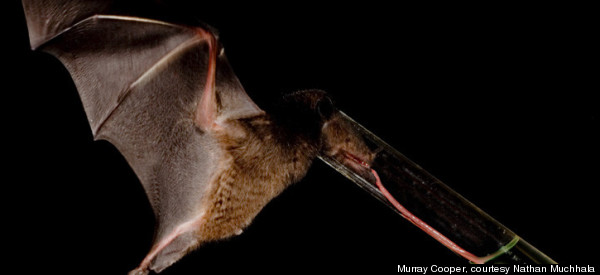| A team of explorers for the National Geographic Channel has captured never-before-seen footage of the tube-lipped nectar bat, a peculiar species discovered in 2005 in the cloud forests of Ecuador. Click the link above to learn more. BLOG POSTS  | Wray Herbert: The Healthy Poor: Demystifying John Henry
First described in the 1980s, "John Henryism" has come to mean a strong-headed, never-give-up attitude toward life and its travails -- an attitude and coping style that, paradoxically, seems to result in old sorts of pathology and disease among the have-nots. |  | Marian Stamp Dawkins: Convincing the Unconvinced That Animal Welfare Matters
In a world increasingly concerned with human issues, the welfare of non-human animals needs all the arguments it can get, but it also needs those arguments to be scrupulously clear and correct, or they will be dismissed as not counting at all. And the losers will be the animals themselves. |  | Dr. Ralph Chou: The Transit of Venus
Logging on to the Internet, it was somewhat disturbing to see the weather forecast for Mauna Kea the next day: At the summit 0 to 20 percent cloud cover with high winds, temperatures near freezing and 50 percent chance of fog. Uh, oh... |  | Agustin Fuentes: DNA Is Not a Blueprint: How Genes Really Work
"Blueprints" is a poor way to describe genes. It is misleading to talk about genes as doing things by themselves. Traits emerge from the interactions of genes and a range of developmental and environmental influences, and similar DNA sequences often produce slightly different outcomes. |  | Tony Phillips: Mars-Based Reality Show: How Stupid Could it Be?
Facts notwithstanding, Mars One claims it intends to land its first team of colonists on Mars in 2023. If you're out of the loop, that's 10 years before NASA hopes to get there. Perhaps such ambition is warranted, given the company's fundraising goals. | | MOST POPULAR ON HUFFINGTONPOST.COM |
If you believe this has been sent to you in error, please safely unsubscribe.













Tidak ada komentar:
Posting Komentar